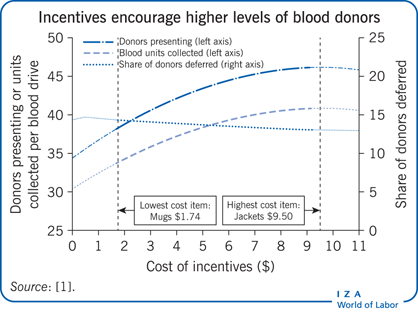Elevator pitch
Early studies often found that offering economic incentives for undertaking prosocial and intrinsically motivated activities can crowd out motivation to perform these activities. More recent work highlights nuanced and important features related to whether crowding out (or substitution) is likely to occur. In many cases, incentives succeed in encouraging more prosocial behavior and are also cost-effective. However, although the substitution of external incentives for intrinsic motivation may not be a concern in many contexts, the substitution of one prosocial activity for another or shifts in activities over time or location may warrant further attention.
Key findings
Pros
Economic incentives provide additional motivation to perform prosocial and intrinsically motivated activities in many different contexts.
Non-profit organizations can apply standard economic principles to motivate their contributors.
Incentives can be managed to positively direct the supply of prosocial activities to periods, places, or activities with larger imbalances between demand and supply.
Most of the incentives that have been found to be effective are also relatively inexpensive.
Cons
If incentives lead to substitution effects over time or space or in the type of activity performed, their impact can be diminished.
Ethical and cultural values might limit the adoption of incentives in certain places or lead to different responses to the same incentive.
Institutional details, which are important in determining the success of incentive programs, can be costly to address.
When incentives are viewed as payments for services rather than as signs of gratitude, they may reduce prosocial behavior.
